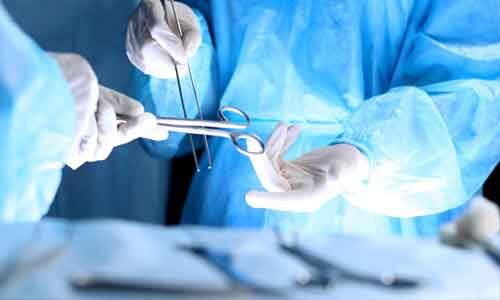- Home
- Medical news & Guidelines
- Anesthesiology
- Cardiology and CTVS
- Critical Care
- Dentistry
- Dermatology
- Diabetes and Endocrinology
- ENT
- Gastroenterology
- Medicine
- Nephrology
- Neurology
- Obstretics-Gynaecology
- Oncology
- Ophthalmology
- Orthopaedics
- Pediatrics-Neonatology
- Psychiatry
- Pulmonology
- Radiology
- Surgery
- Urology
- Laboratory Medicine
- Diet
- Nursing
- Paramedical
- Physiotherapy
- Health news
- Fact Check
- Bone Health Fact Check
- Brain Health Fact Check
- Cancer Related Fact Check
- Child Care Fact Check
- Dental and oral health fact check
- Diabetes and metabolic health fact check
- Diet and Nutrition Fact Check
- Eye and ENT Care Fact Check
- Fitness fact check
- Gut health fact check
- Heart health fact check
- Kidney health fact check
- Medical education fact check
- Men's health fact check
- Respiratory fact check
- Skin and hair care fact check
- Vaccine and Immunization fact check
- Women's health fact check
- AYUSH
- State News
- Andaman and Nicobar Islands
- Andhra Pradesh
- Arunachal Pradesh
- Assam
- Bihar
- Chandigarh
- Chattisgarh
- Dadra and Nagar Haveli
- Daman and Diu
- Delhi
- Goa
- Gujarat
- Haryana
- Himachal Pradesh
- Jammu & Kashmir
- Jharkhand
- Karnataka
- Kerala
- Ladakh
- Lakshadweep
- Madhya Pradesh
- Maharashtra
- Manipur
- Meghalaya
- Mizoram
- Nagaland
- Odisha
- Puducherry
- Punjab
- Rajasthan
- Sikkim
- Tamil Nadu
- Telangana
- Tripura
- Uttar Pradesh
- Uttrakhand
- West Bengal
- Medical Education
- Industry
COVID-19 patients who undergo surgery at high death risk: Lancet

Patients undergoing surgery after contracting coronavirus are at greatly increased risk of postoperative death, a new global study reveals.
London: Researchers have found that patients undergoing surgery after contracting COVID-19 are at greatly increased risk of postoperative death, according to a new global study.
The study published in The Lancet journal has found that overall in the 30 days following surgery 51% of patients developed a pneumonia, acute respiratory distress syndrome, or required unexpected ventilation. This may explain the high mortality, as most (81.7%) patients who died had experienced pulmonary complications.
Patients undergoing surgery are a vulnerable group at risk of SARS-CoV-2 exposure in hospital. They may be particularly susceptible to subsequent pulmonary complications, due to inflammatory and immunosuppressive responses to surgery and mechanical ventilation.
The study found that amongst Covid 19 infected patients who underwent surgery, mortality rates approach those of the sickest patients admitted to intensive care after contracting the virus in the community. In the study, the research team led by the University of Birmingham in the UK examined data for 1,128 patients from 235 hospitals and a total of 24 countries participated, predominantly in Europe, although hospitals in Africa, Asia, and North America also contributed.
The researchers noted that SARS-CoV-2 infected patients who undergo surgery, experience substantially worse postoperative outcomes than would be expected for similar patients who do not have the infection. "We would normally expect mortality for patients having minor or elective surgery to be under one per cent but our study suggests that in SARS-CoV-2 patients these mortality rates are much higher in both minor surgery (16.3 per cent) and elective surgery (18.9 per cent)," said study co-author Aneel Bhangu from the University of Birmingham.
According to the study, the 30-day mortality among these patients was 23.8 per cent. Mortality was disproportionately high across all subgroups, including elective surgery (18.9 per cent), emergency surgery (25.6 per cent), minor surgery such as appendectomy or hernia repair (16.3 per cent), and major surgery such as hip surgery or colon cancer surgery (26.9 per cent).
The study identified that mortality rates were higher in men (28.4 per cent) versus women (18.2 per cent), and in patients aged 70 years or over (33.7 per cent) versus those aged under 70 years (13.9 per cent). In addition to age and sex, risk factors for postoperative death included having severe pre-existing medical problems, undergoing cancer surgery, undergoing major procedures, and undergoing emergency surgery.
"Our data suggests that it was the right decision to postpone operations at a time when patients were at risk of being infected with SARS-CoV-2 in hospital," said study co-author Dmitri Nepogodiev.
For further reference log on to:
COVIDSurg Collaborative. Mortality and pulmonary complications in patients undergoing surgery with perioperative SARS-CoV-2 infection: an international cohort study. The Lancet, 2020; DOI: 10.1016/S0140-6736(20)31182-X
Medical Dialogues Bureau consists of a team of passionate medical/scientific writers, led by doctors and healthcare researchers. Our team efforts to bring you updated and timely news about the important happenings of the medical and healthcare sector. Our editorial team can be reached at editorial@medicaldialogues.in.
Dr Kamal Kant Kohli-MBBS, DTCD- a chest specialist with more than 30 years of practice and a flair for writing clinical articles, Dr Kamal Kant Kohli joined Medical Dialogues as a Chief Editor of Medical News. Besides writing articles, as an editor, he proofreads and verifies all the medical content published on Medical Dialogues including those coming from journals, studies,medical conferences,guidelines etc. Email: drkohli@medicaldialogues.in. Contact no. 011-43720751


